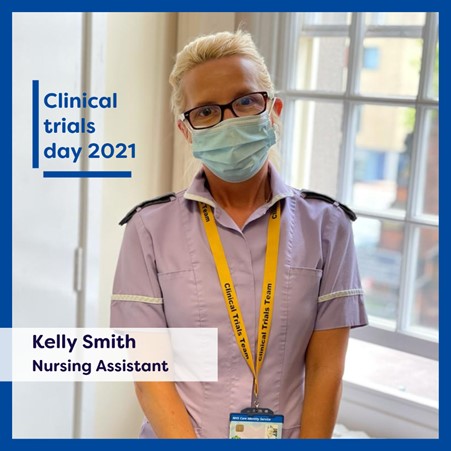Kelly smith

What do you do on a daily basis?
"Working in research no two days are the same. I complete screening, data collection and attend face to face clinics visits. I work on the SIREN study, the purpose of this study is to understand whether prior infection with SARS-CoV2 (the virus that causes COVID-19) protects against future infection with the same virus. As such I get to see various staff members who attend clinic every fortnight for PCR testing and monthly for blood sampling.
I work in various areas of UHNM delivering research, meeting lots of patients and many staff. I have had the privilege of working on some fantastic projects including a Lung study called Lucid which is focused on looking at the compounds a person exhales to determine if analysis of exhaled breath can detect lung cancer. This test is not invasive and easy to perform, however, the patients were understandably anxious as a result of the diagnosis, my first priority was to always put the patient at ease."
Why do you enjoy your job?
"Working in research I get to make a difference and be part of the change to treatment and pathways of care, I am honoured as I am allowed to be part of the patient journey. Prior to joining the Research & Innovation department I worked in the cancer centre. Being part of research has allowed me to continue working in an area I am very passionate about."
What’s it like to be a part of the research team at UHNM?
"I enjoy the variety of work I do as some days I am office based collecting data and other days I am on the wards or in the departments approaching patients, offering them the opportunity to be part of research.
During the pandemic the team has demonstrated that we can adapt to a new way working."
How important are clinical trials?
"Without research and clinical trials we would not evolve and we would not influence more effective treatments and pathways. Without the research we possibly would not move forward and find better ways of treating and managing lifelong conditions."